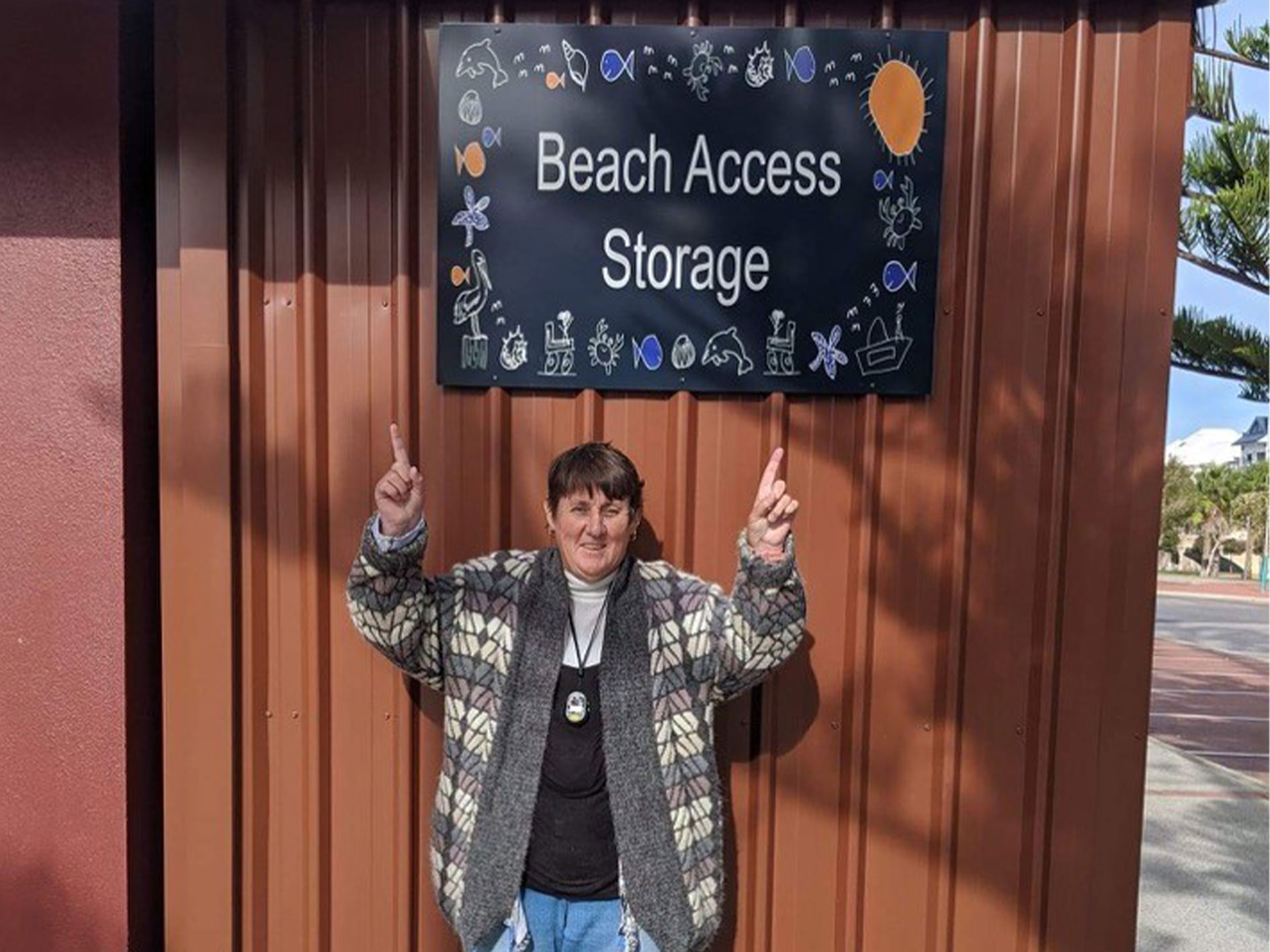This year we supported customers with their independence and wellbeing by tailoring services to individuals. We helped customers achieve their goals and supported them to pursue skills and interests. In the NDIS space, we worked to streamline our processes, and developed a framework to provide an efficient, responsive and capacity-building approach to Support Coordination services.
Chorus Disability Employment Services (DES) have had an incredible year.
The success rate of customers finding meaningful and long term employment has improved significantly during the 2019/2020 period. All three of the Chorus DES locations have had an improvement in the numbers of customers moving from actively looking for employment, to being employed, with Rockingham having 57.14% of customers being in a post placement support phase of their journey with Chorus.
In addition, Chorus DES are now exceeding national standards in seven out of nine outcomes for customers, compared to only one outcome in the previous year.
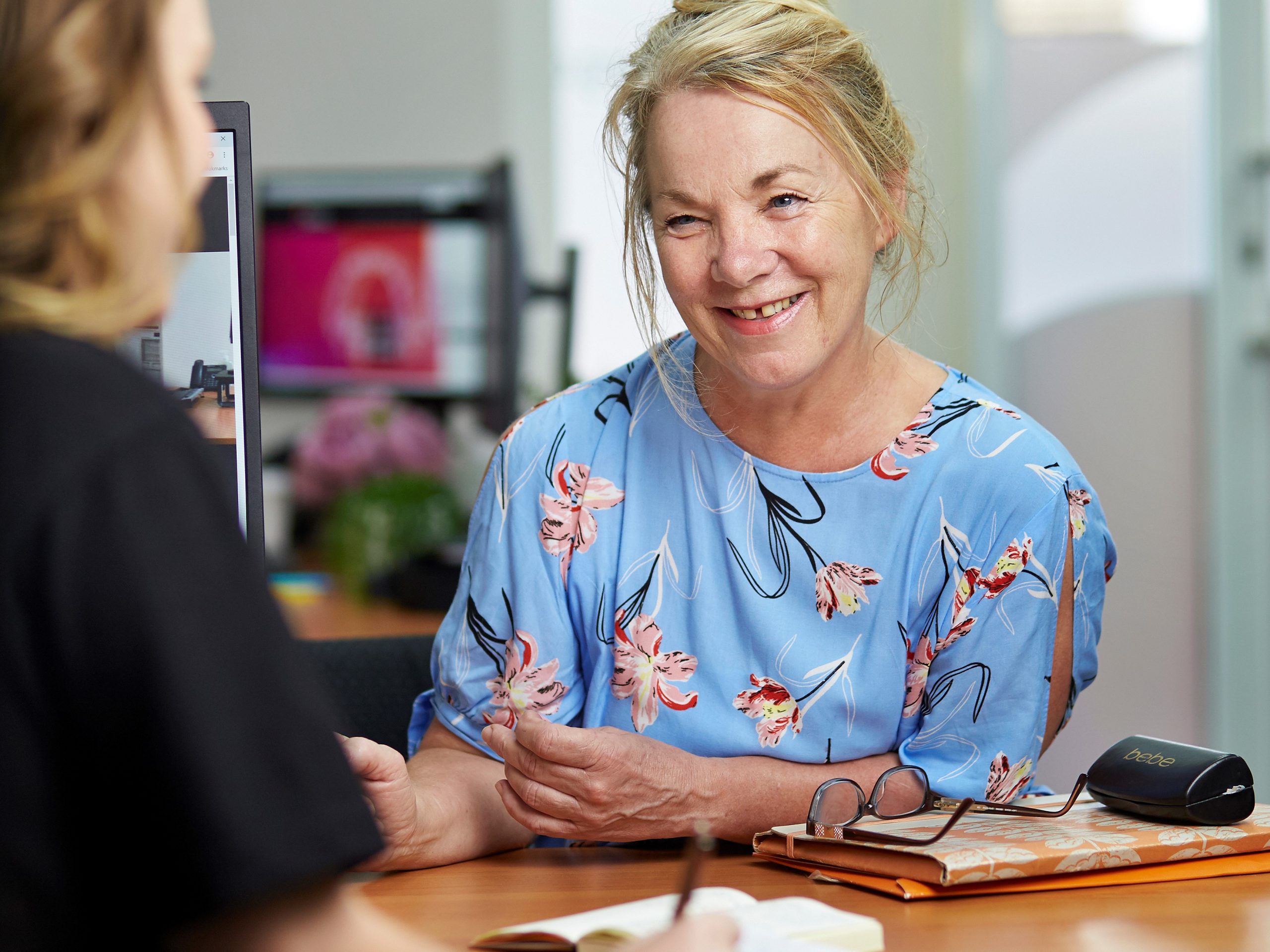
Peter, an electrician, wanted to start his own business. As a family man he was keen to demonstrate success to his children.
He had also injured himself. “I was unemployed and had a job network provider,” he said. “And because I had an arm injury, they told me I was best suited for Chorus.”
Chorus initially worked with Peter by referring and coaching him through the NEIS (New Enterprise Initiative Scheme), a government funded program that supports people to run their own business.
“We helped him understand and manage the situations around him on a personal level with his family, with his business and the NEIS programme,” said Nikkita, Chorus Disability Employment Consultant.
Peter initially did a three-week course to set up the business plan, which, he says, he’s “absolutely smashing.”
Part of the business plan was to join a networking group, so Peter joined a BNI (Business Networking Group). He has been supported by a variety of professionals, including accountants, lawyers and real estate people.
“They’ve helped me with my personal development and my public speaking,” he said. Other members have also helped him set up a Facebook page for his business and his phone has been running hot with jobs. “The business name is definitely getting out there,” he added.
Being in the group has helped Peter understand what some people are going through. “You understand their situations a bit easier once you’ve been through them yourself and you can relate to them.”
Talking to Nikkita and the Chorus team has also meant a lot to Peter. “Some days it was about the business, some days it was about the kids, some days it was about me,” he said.
As for his family, Peter has already involved his sons in the business and his daughter is also keen once she’s old enough.
What’s it like for Peter to have his own business?
“Honestly, I’m jumping from my skin. I love it. I love the chase of the work, I love meeting new people, and walking into the businesses with: ‘Hi, my name is Peter.’ And giving them my business card.”
Peter has some advice for people in similar situations, “Some days it’s dark and gloomy, but the next day it’s sunny. You just roll with it and look forward to the sunny days.”
Billie was the first female jump parachute instructor in the army. She led by example and performed 300 jumps over 10 years.
“It was to give the guys confidence, that gee, if a female could do it, couldn’t you?” recalled Billie. “They were like my brothers.”
In 1990 Billie fell from a 10,000-foot jump.
“I didn’t get the prize because I couldn’t walk away because I had actually fractured my femur… pelvis in three places and orbital floor.”
Billie also ended up in Hollywood Psychiatric Hospital.
“When you’re averaging two bottles of scotch a night with Diet Coke, it’s a bit much for the old system,” she said. Billie has since turned her life around, including walking the Kokoda Track three times. Her story of survival is inspiring – not only to women but also to people living with a disability.
She participates in Chorus social programs and with her assistance dog Rio is active in the community.
Billie is a role model to Chorus support worker Angela.
“She is completely independent and that is quite inspiring because she also breaks down those barriers and those stereotypes around disability, and what people who are living with a disability are capable of,” said Angela.
This year, six entries from Ability Arts Monday pottery group entered the ‘As We Are’ art awards, an annual exhibition for Western Australian Artists living with disability.
Mason Levy and Graham McGee were awarded High Commendations for their sculptural works and five artists sold their artwork on opening night. Mason’s sculpture ‘Face (distorted) Beauty’ was the first project he worked on at Ability Arts.
This is the fourth year we have taken part in the exhibition and it has given customers something to work towards, a huge sense of pride in their abilities and a chance to win awards and sell their artwork.
At Christmas Ability Arts was alive with jingles, decorations, nibbles and smiles. The group love singing for an audience, so we invited family, friends and people from the Chorus community to watch a performance. It was a special way for family members to be part of the activities at Ability Arts.
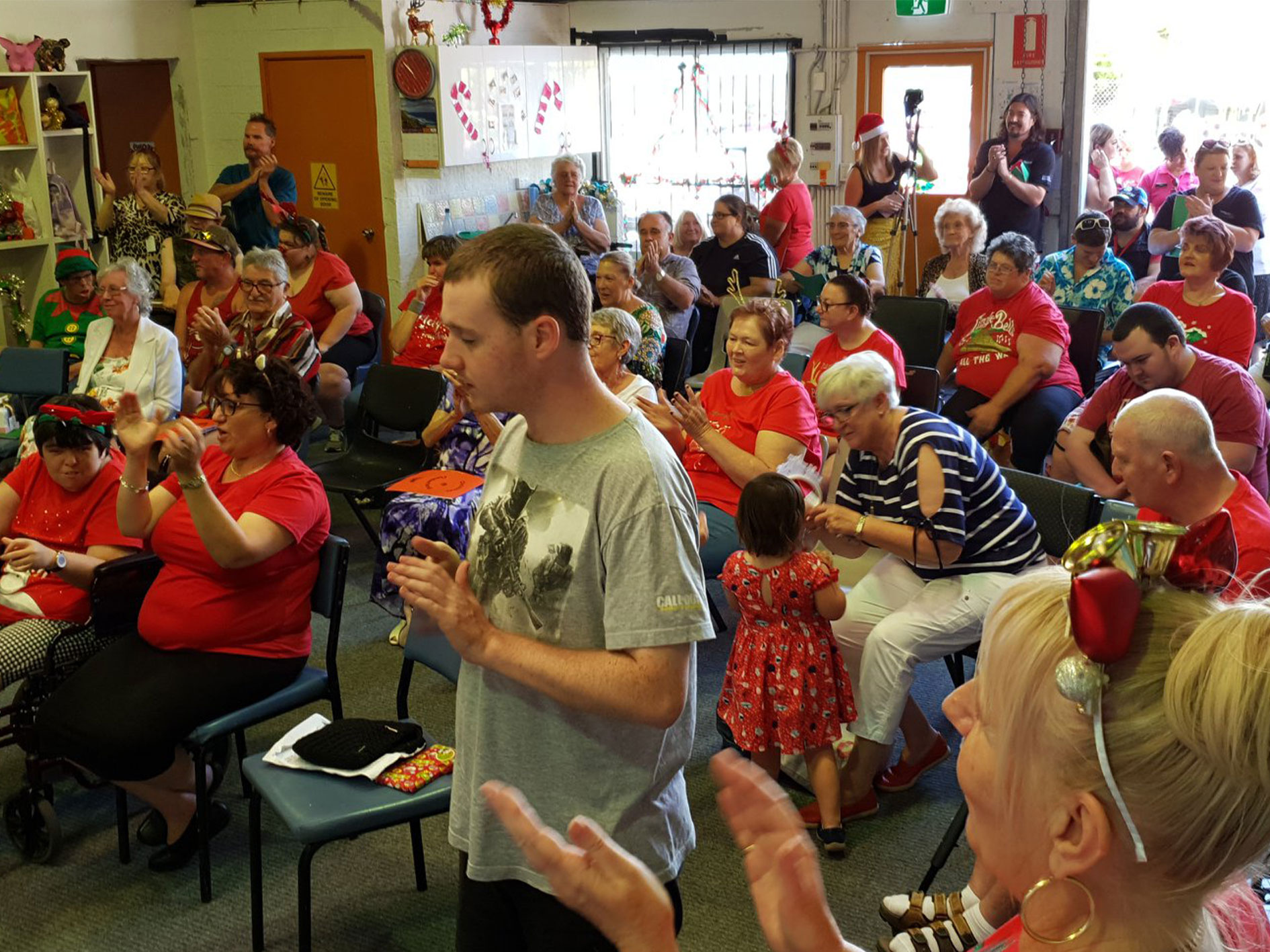
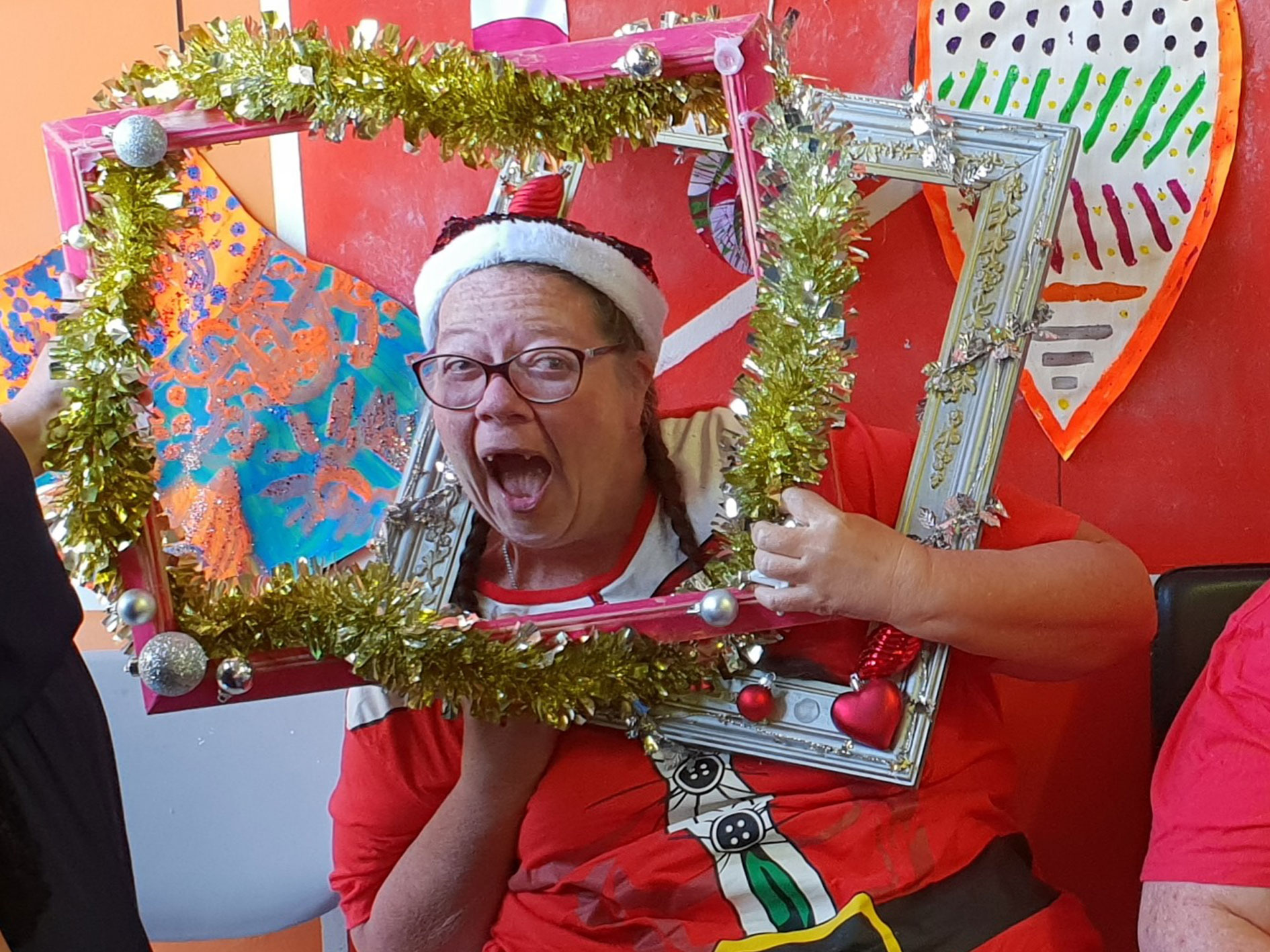
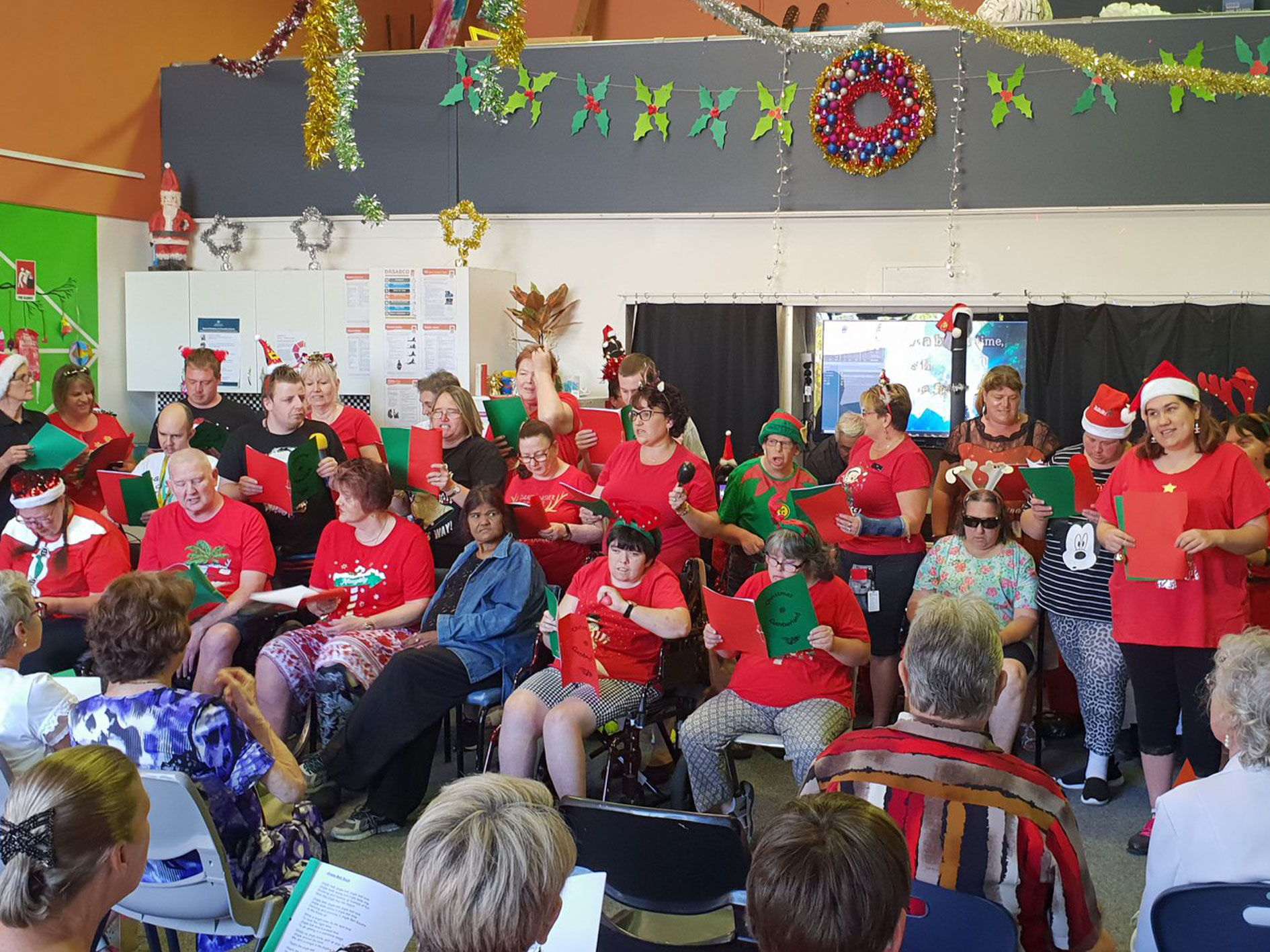
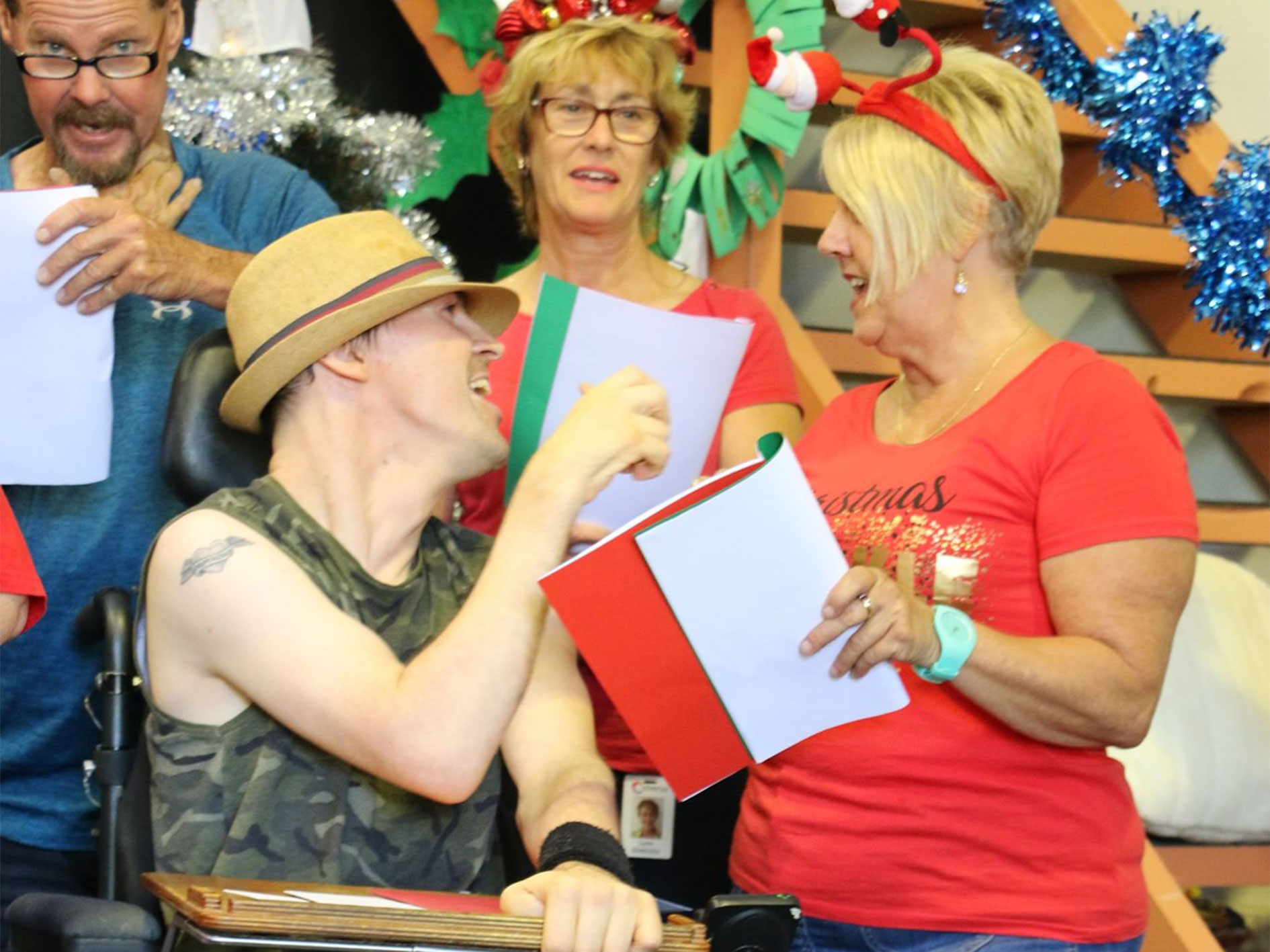
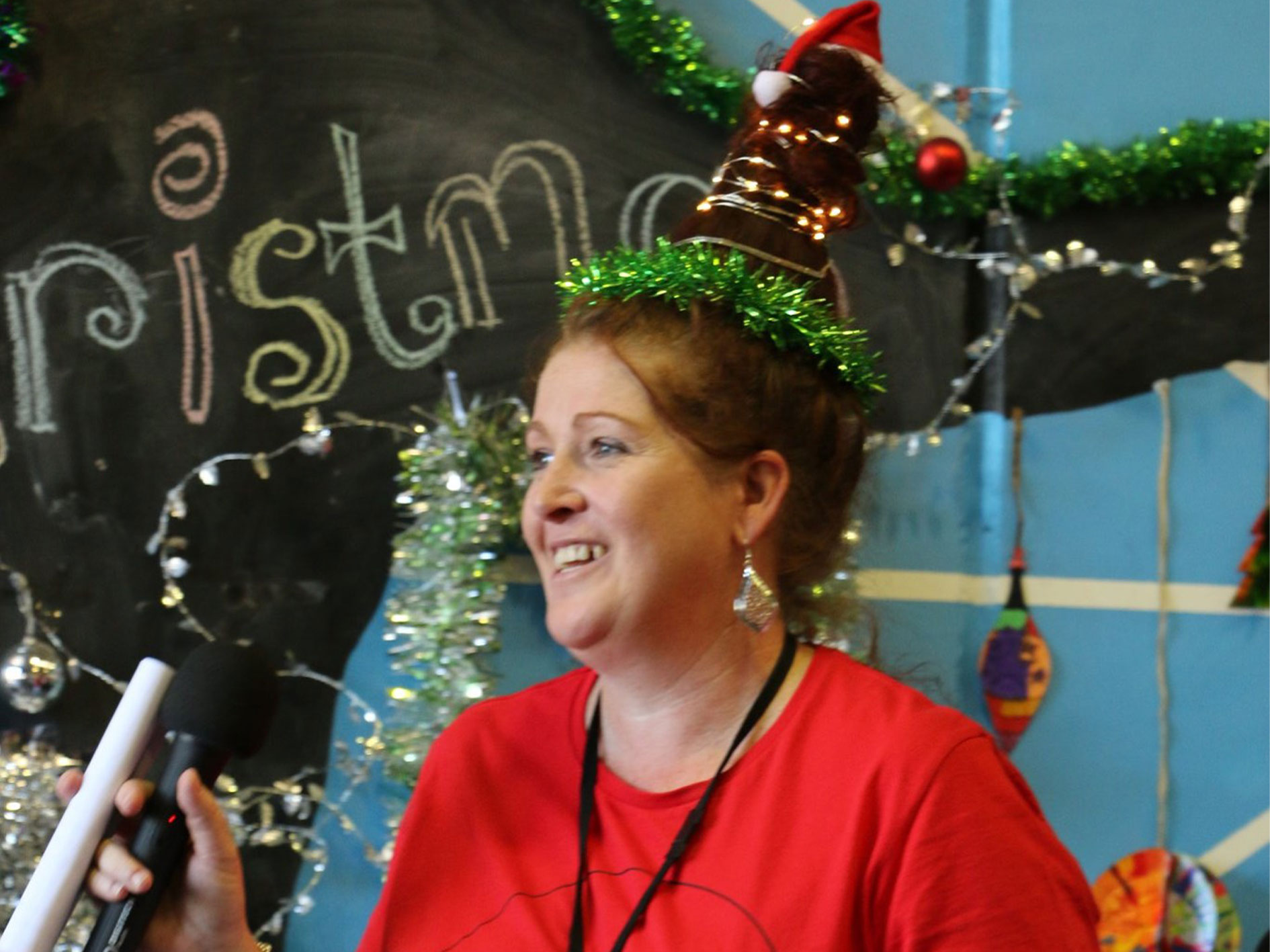
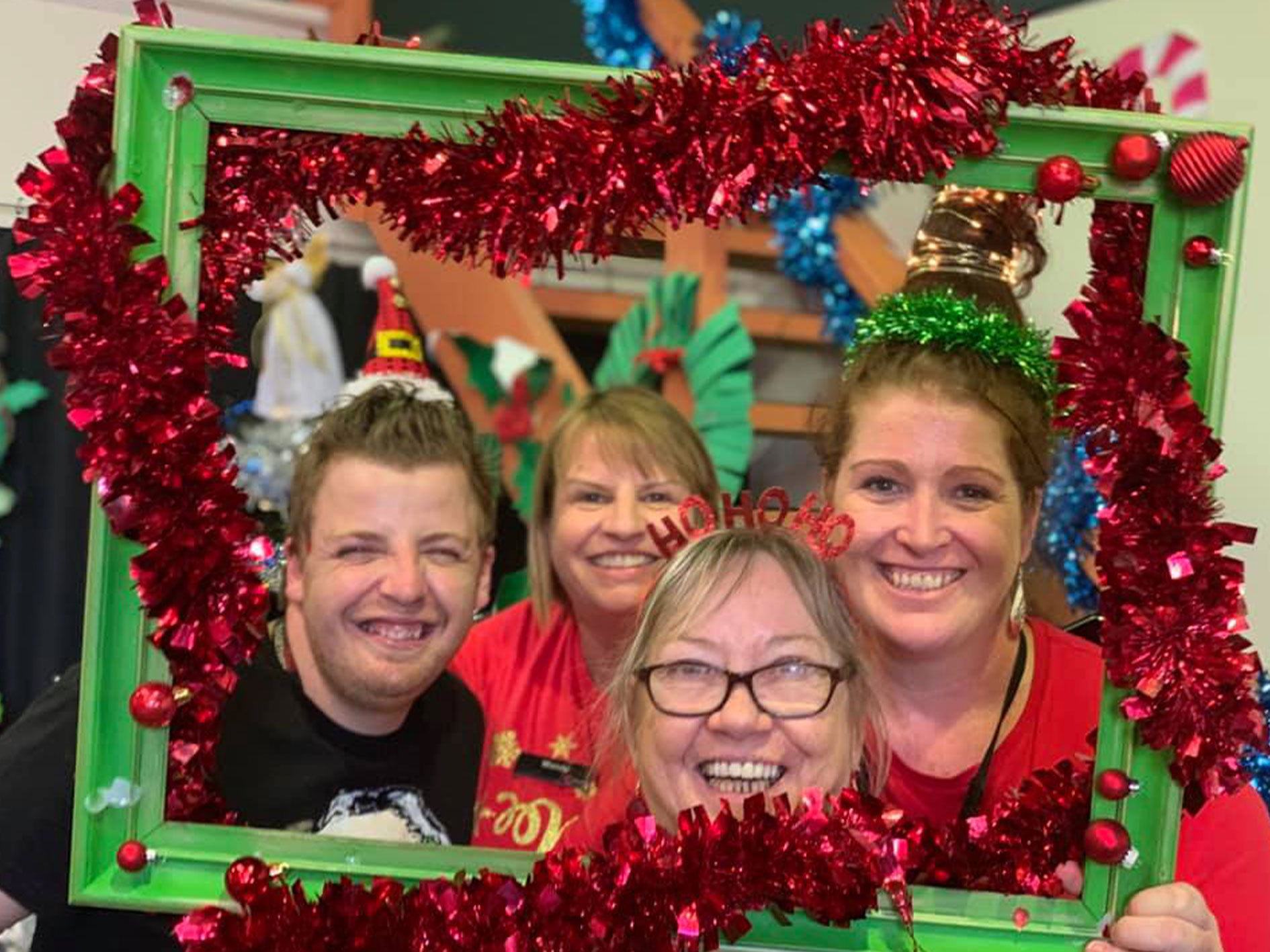
The Chorus Kwinana Cooking Group planted seeds and seedlings, visited community gardens and gathered ideas for their own food garden at the Centre.
The food garden has been a fantastic joint effort. Chorus gardeners took care of the soil, sorted out the reticulation and donated plants to grow fresh produce. A big thanks to Woolworths for donating more than 30 of their discovery herb and vegetable seed pots which customers have planted and taken care of.
Chorus customers from various social centres came together on Valentine’s Day for a special dinner dance at the Kwinana centre. Volunteer/DJ Ray was spinning the tunes and had everyone grooving until the sun went down. A special shout out to Ability Arts for creating the beautiful decorations.
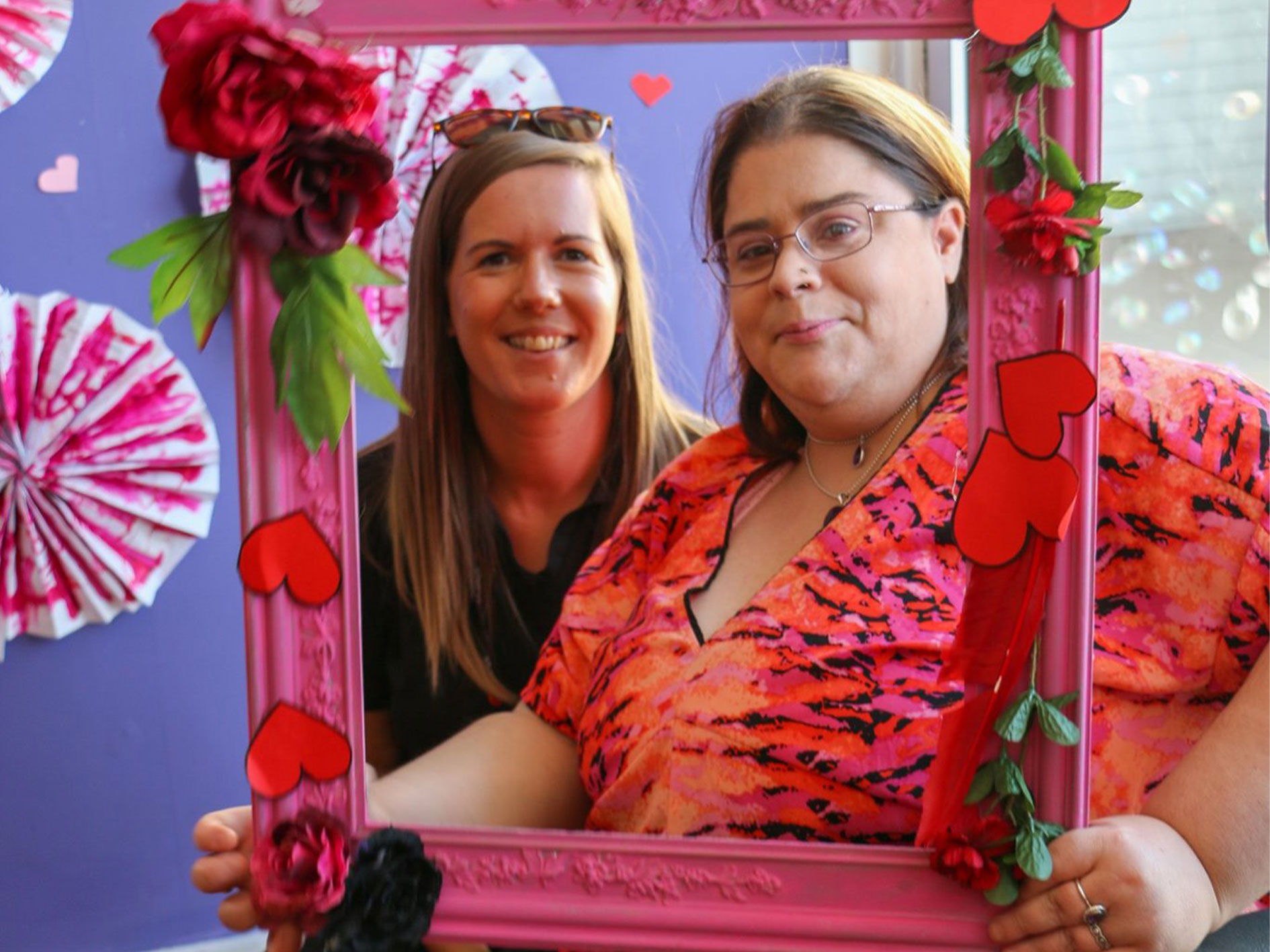
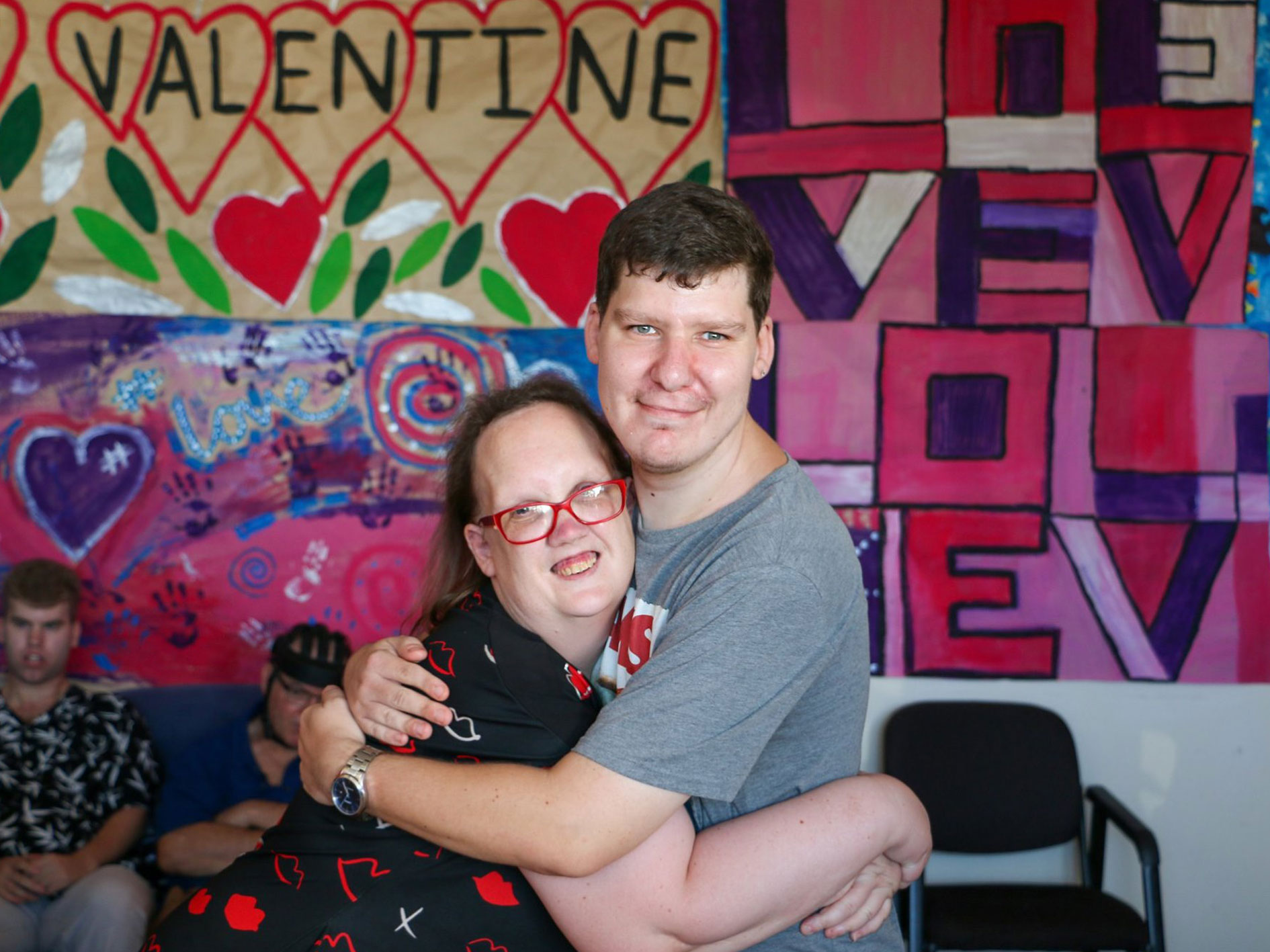
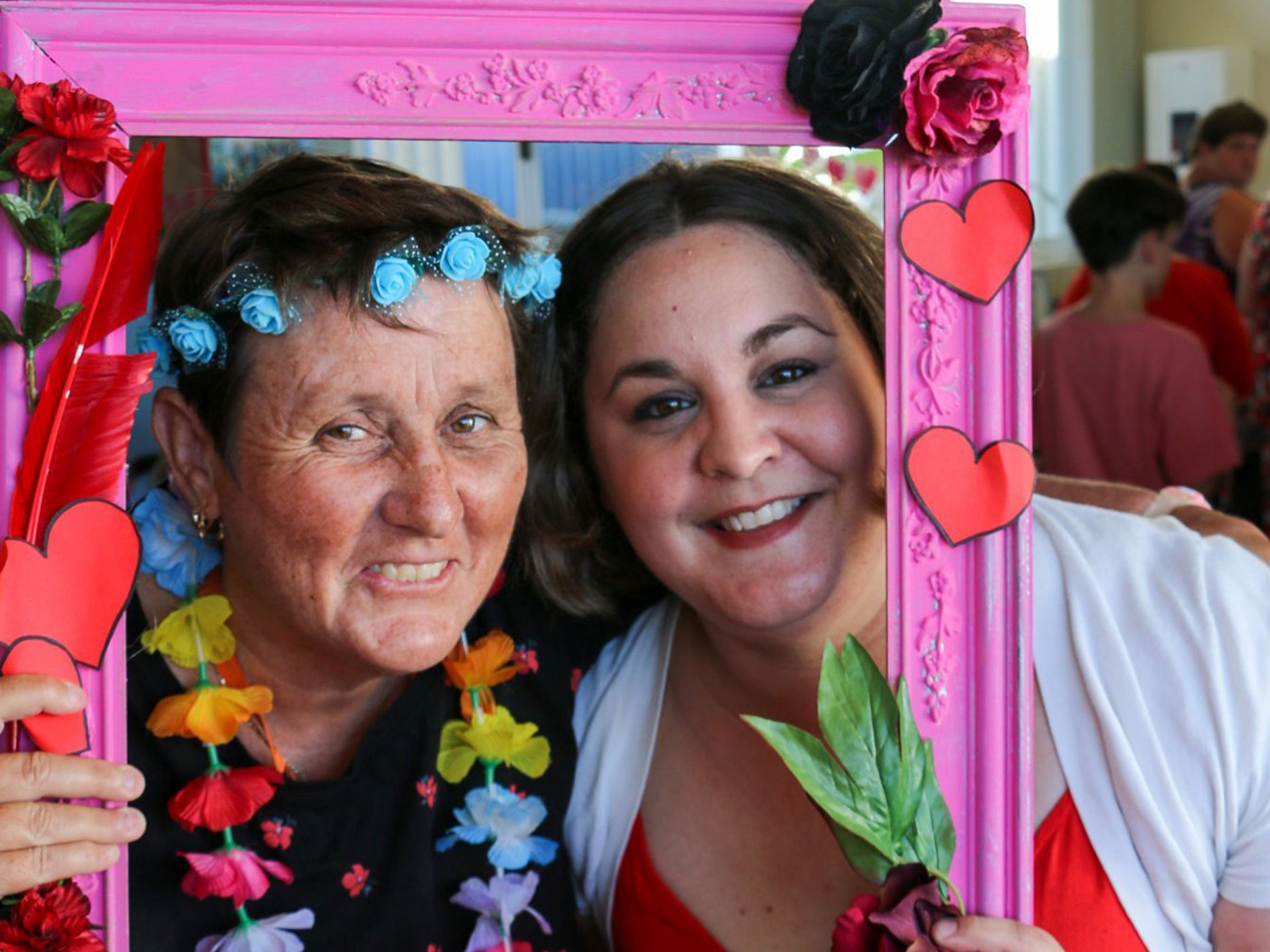
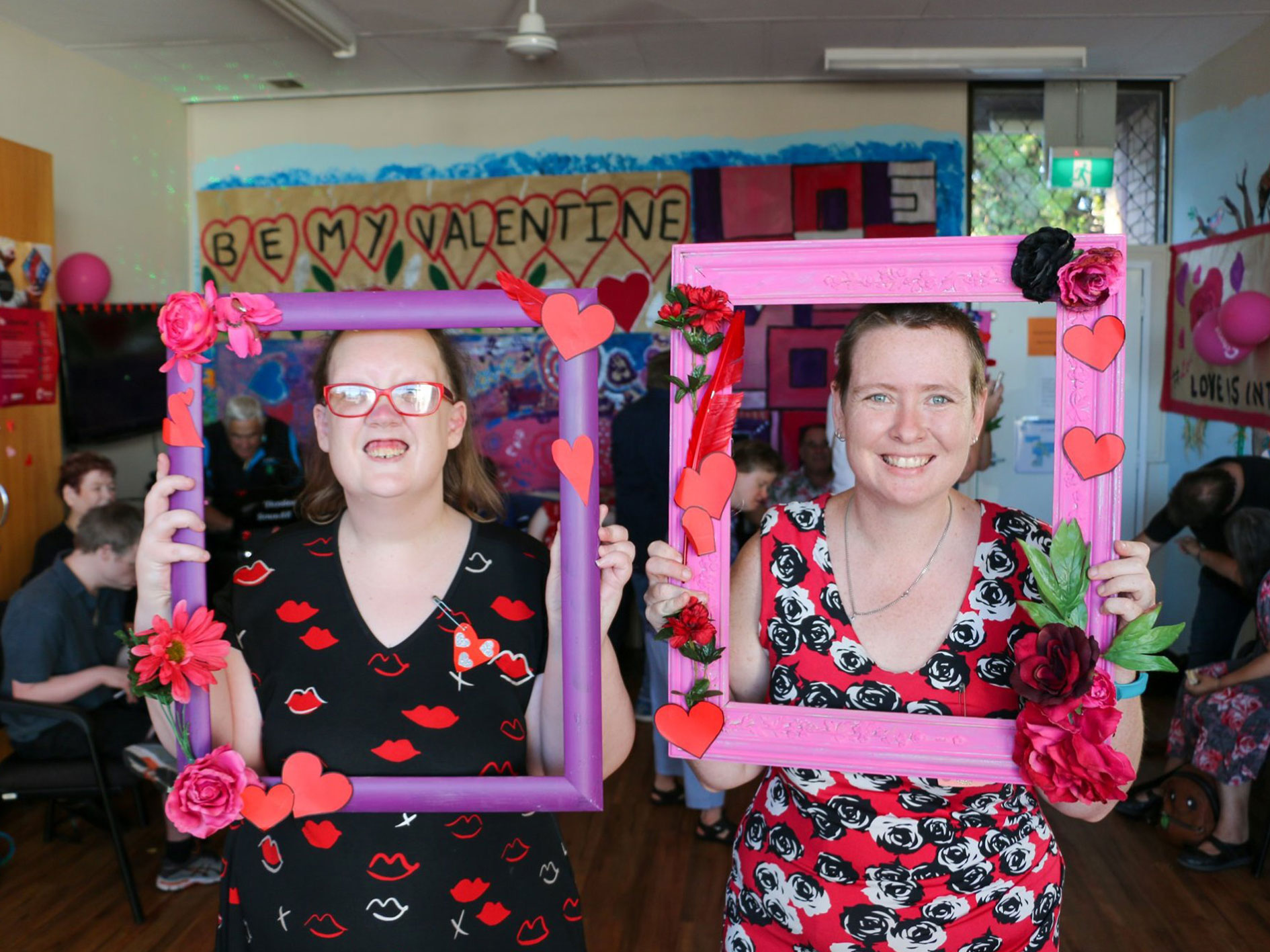
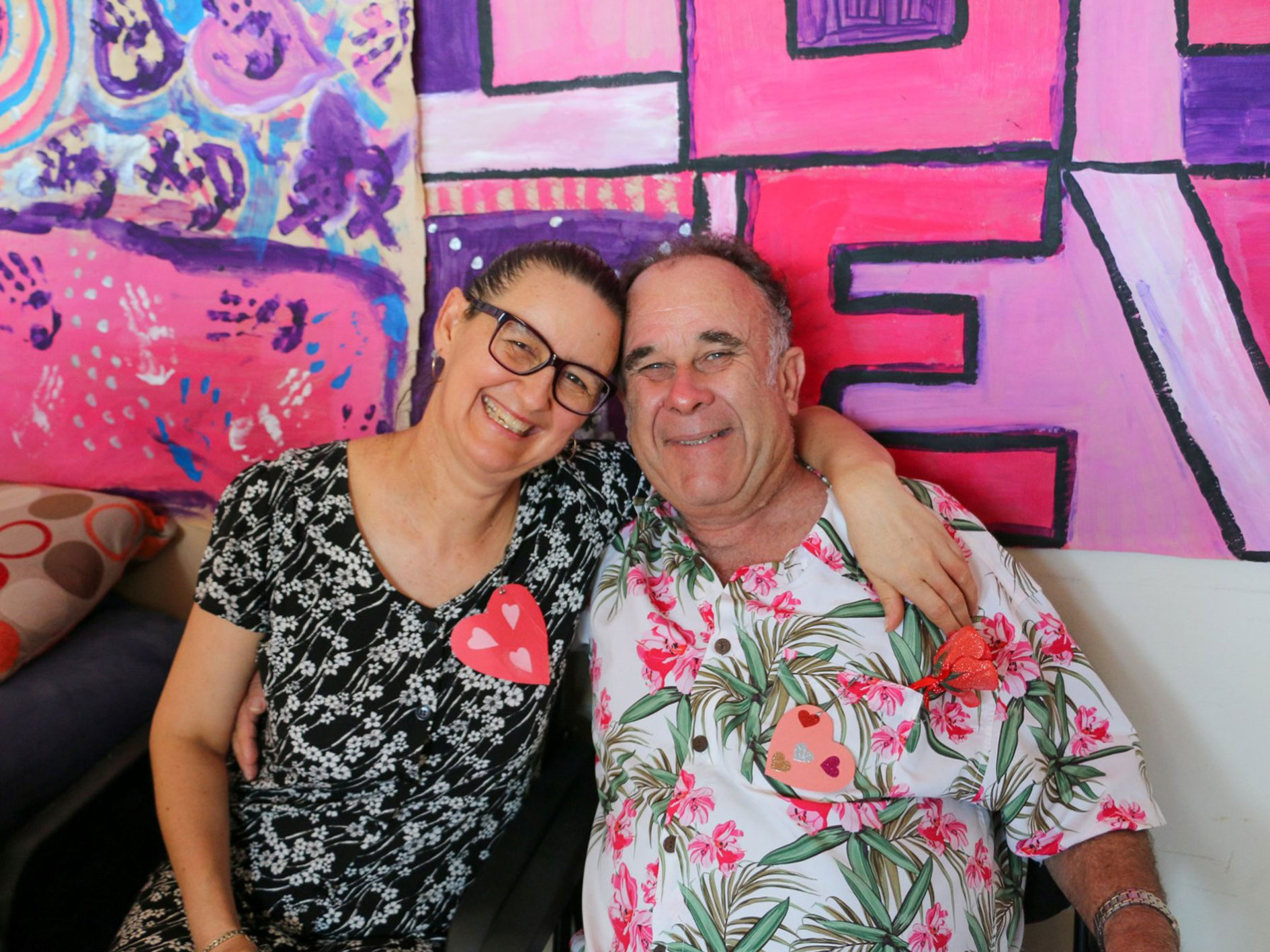
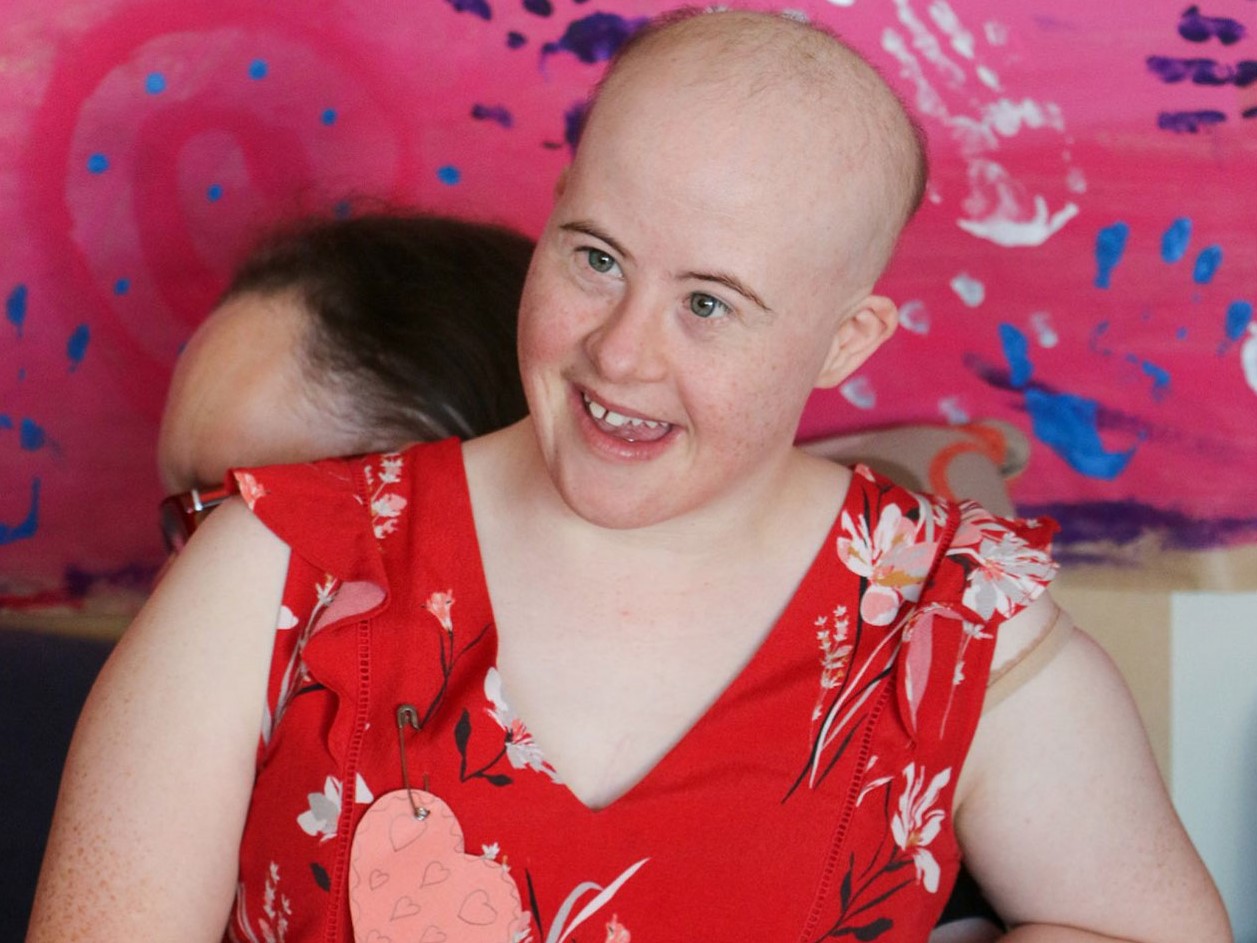
Jen finds life in a wheelchair challenging – from facing invisible barriers to having to plan even the smallest activity.
“Friends and family disappear out of the woodwork. It’s the person who doesn’t choose isolation. In a sense, the whole of society chooses isolation,” said Chorus Coordinator, Bruce Carstairs.
“You get angry at the world, you get angry at your friends, because the normal things you used to do with them, they don’t realise that you just can’t physically do,” said Jen.
Jen tries to stay positive. She has painted her wheelchair pink so children in the supermarket aren’t scared of the wheelchair.
“Sometimes they get their mum to put them on the lap, and I can take them for a little spin around and they love it.”
“I want them to see me,” she added. “Not the chair. I’m a person, I’m human still.”
Bruce could see that Jen’s life was restricted and he suggested she do some art at the Chorus Multicultural Activity Centre. Monday is Asian Day and not much English is spoken.
Coming along to the Centre has been a big success – both for Jen and the ladies who gather to play Mahjong. Jen enjoys socialising without being judged and the ladies have a way of welcoming her, despite the language barrier.
“We’re all really different, but it works really well,” she said.
Jen enjoys the program so much that she and her husband Dale decided to visit the Chorus Ability Arts Centre in Mandurah to see what it is like there. Her visit was a hit!
The crew at Ability Arts asked Jen why she is using a wheelchair and tell Jen about their activities, like playing guitar and art.
“It makes me smile hearing from Kimberly and Hayley and Brian (from the Ability Arts program),” said Louise Forster. “And hearing about Jen’s experience and how Dale supports her.”
“One of the things that really struck me about Jen’s story was this progression from being quite isolated to feeling connected. It’s such an important part of a good life,” said Dan Minchin.
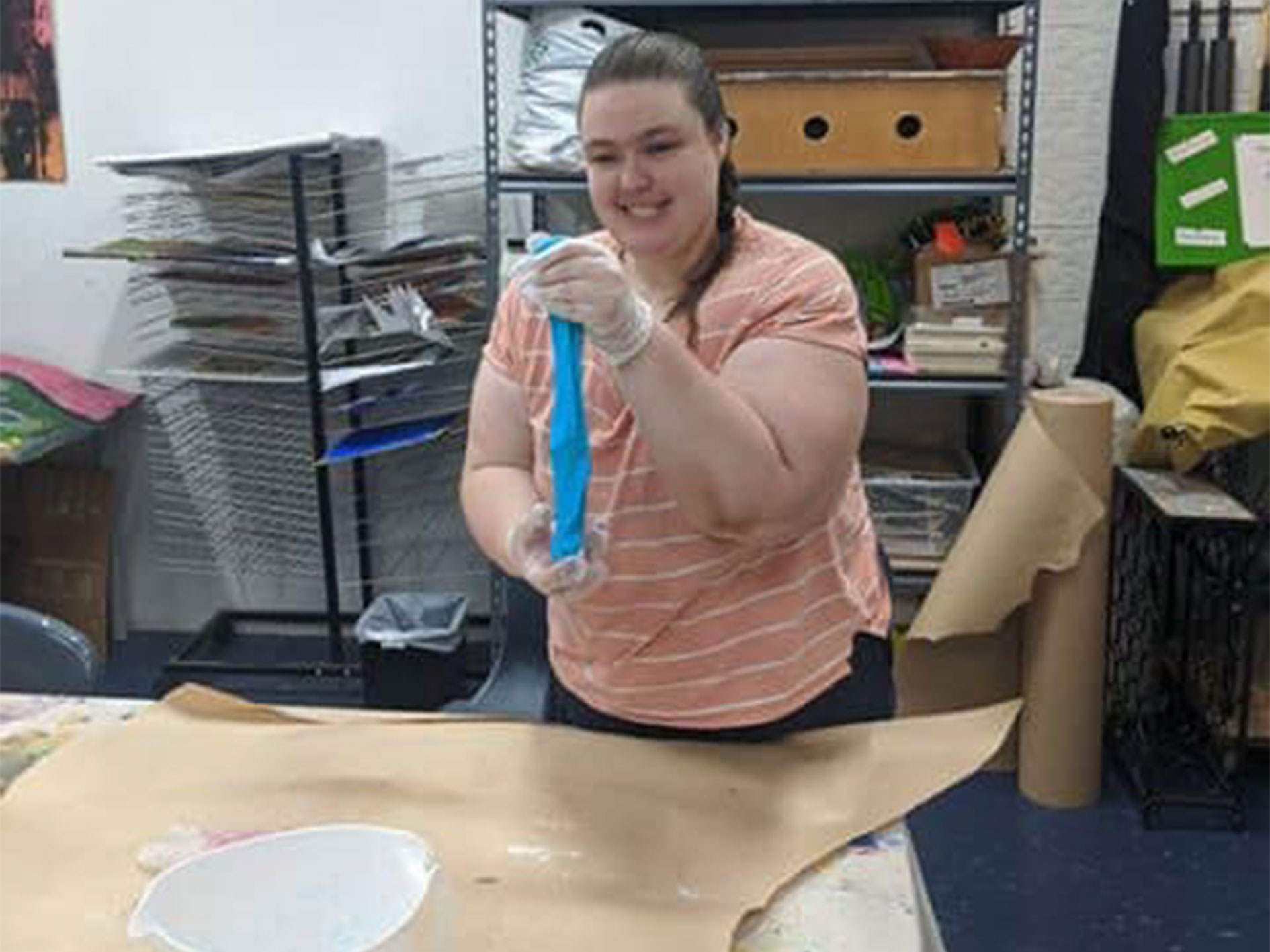
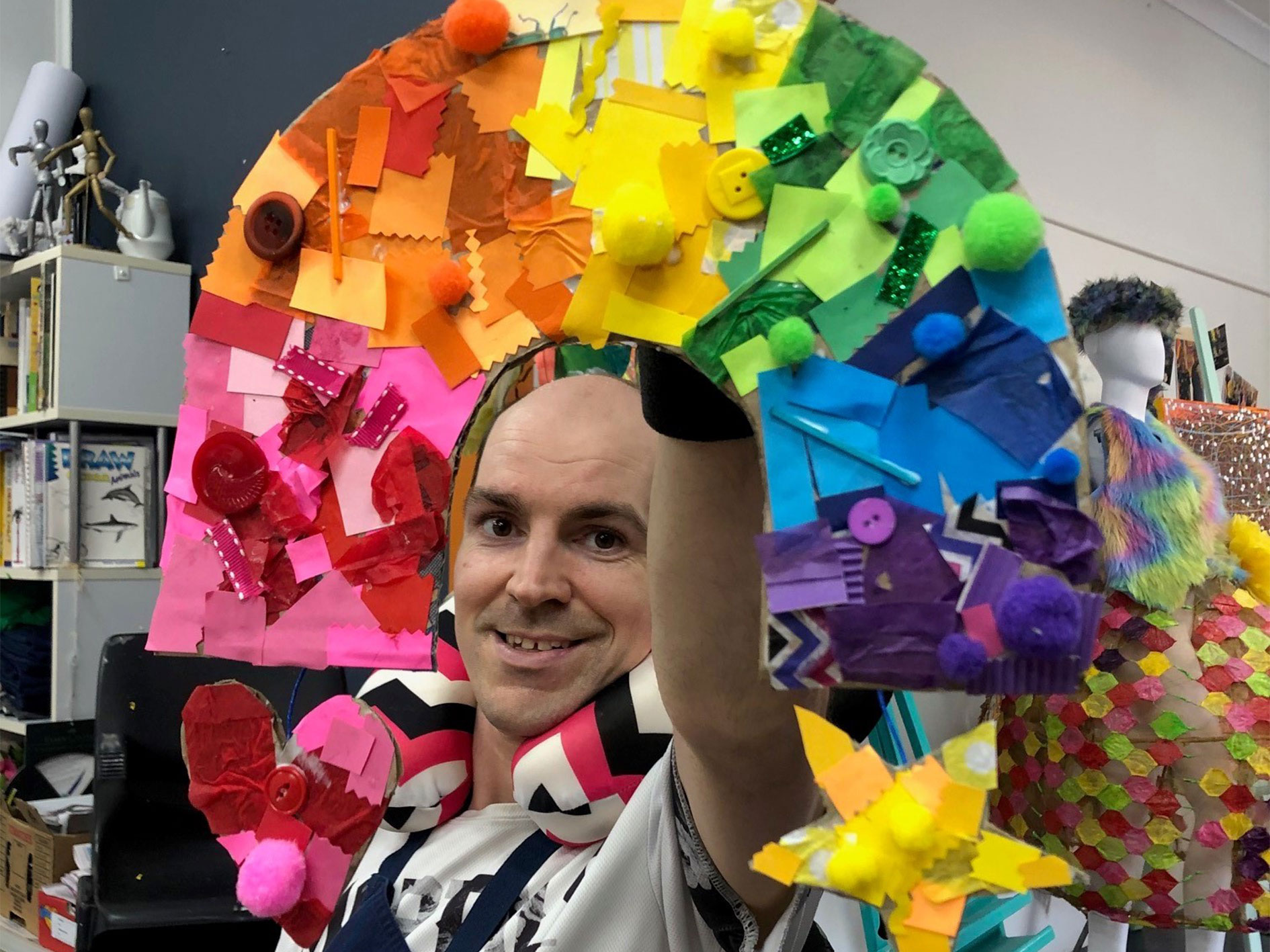
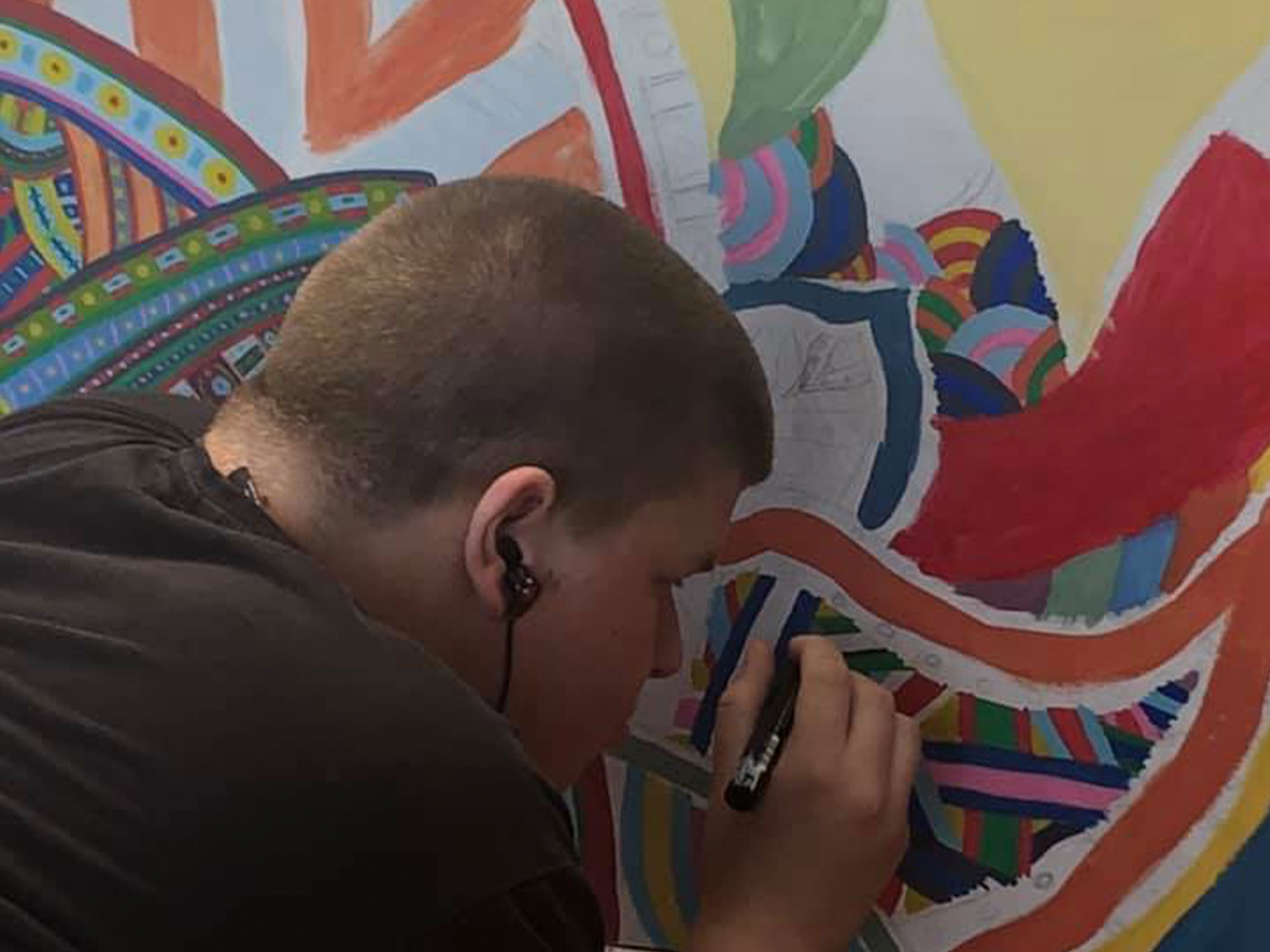
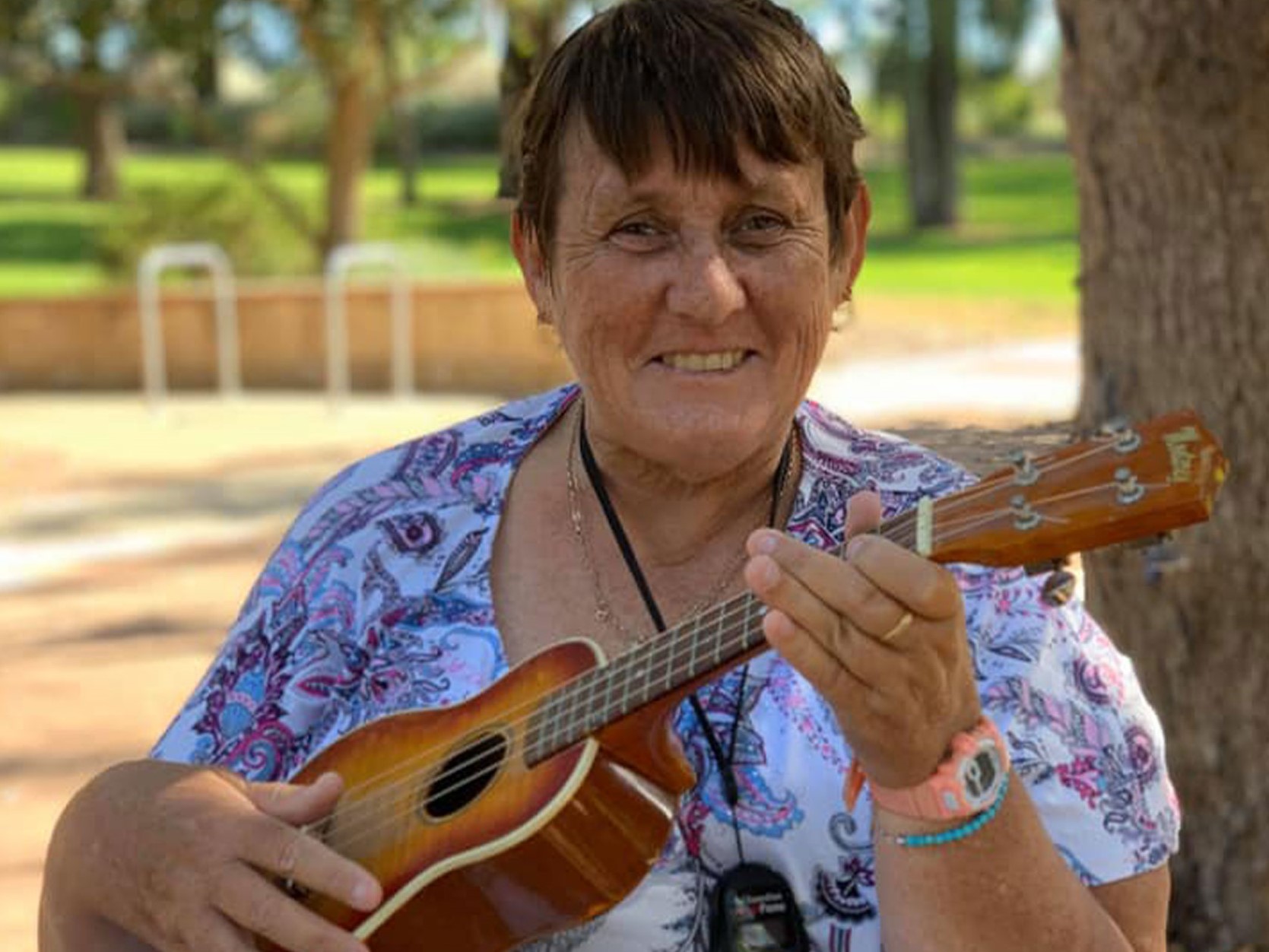
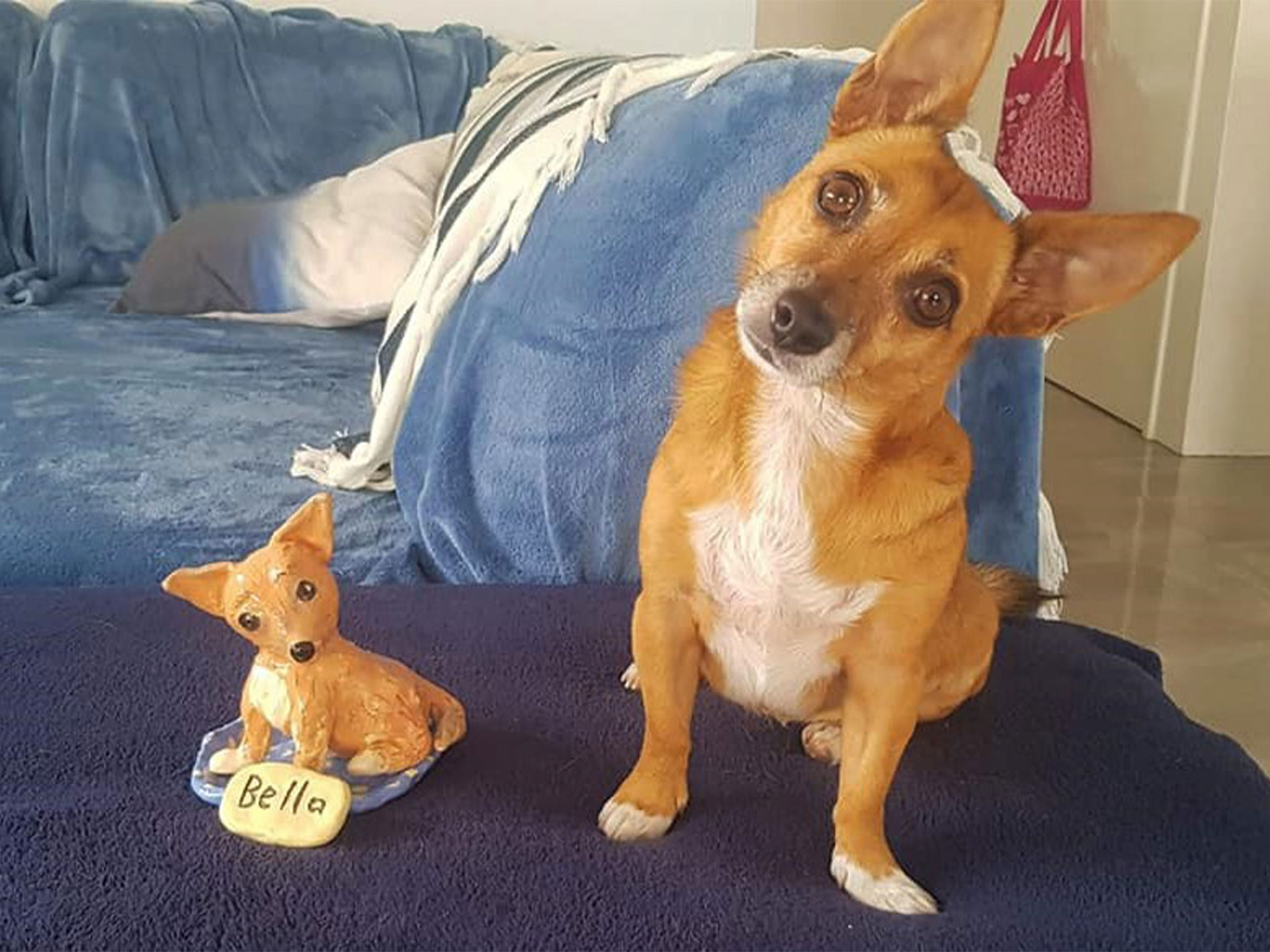
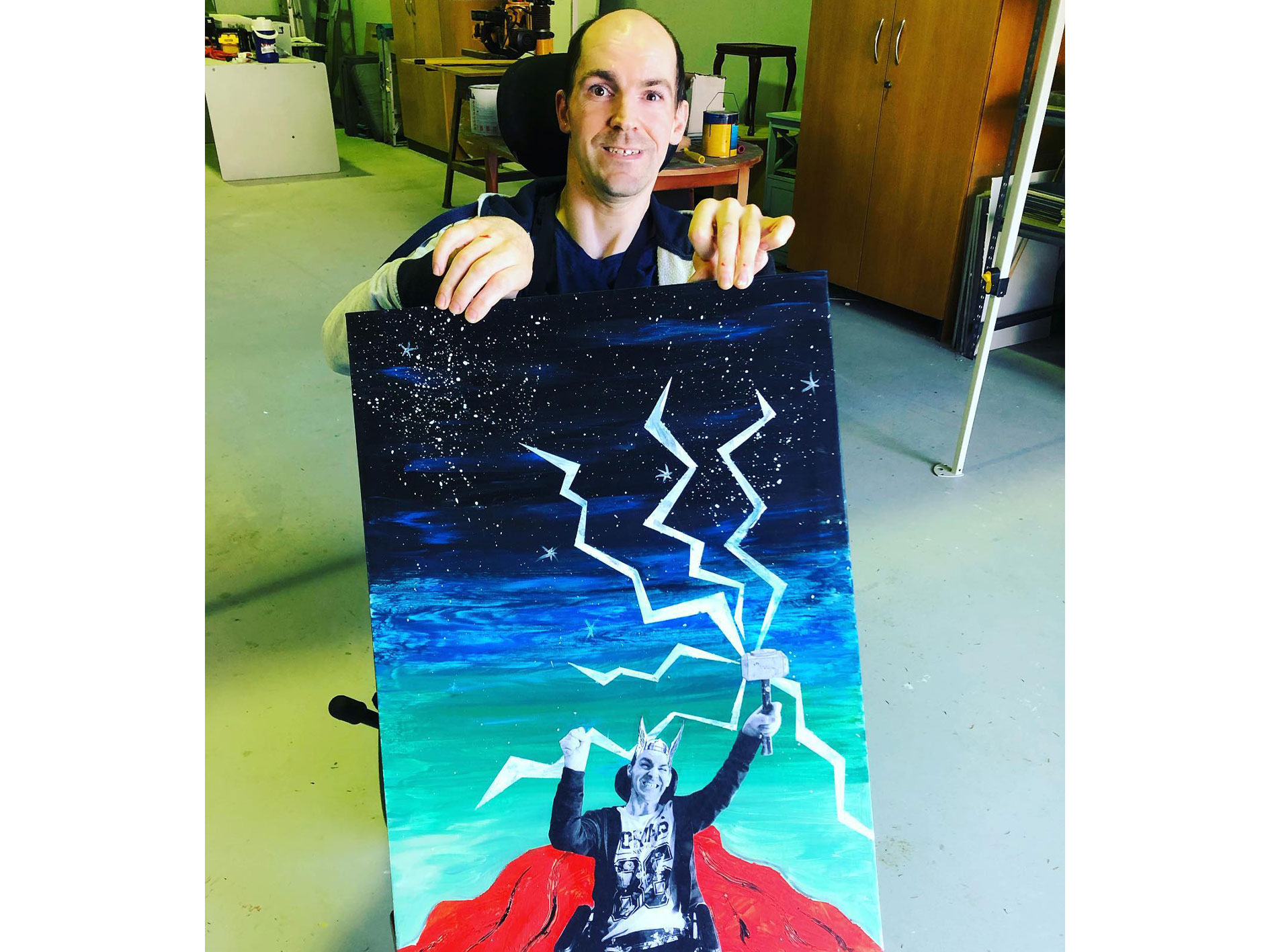
Ability Arts facilitator Elli Moody devised a plan to run a three-month long, art kit subscription scheme to give people living with disability an opportunity to get creative in their own homes.
We had 43 participants from six to 70 years of age take part in the project in Mandurah, Rockingham, Baldivis and Kwinana.
We sent out six art kits, one each fortnight, with Ability Arts volunteers Tom, Megan and Vicky lending a hand to put the kits together.
Ability Arts customer Brian took on a new role helping to deliver the Mandurah kits each fortnight, and customers Hayley, Kimberley and Michael took turns making a video to go with each art kit.
Ability Arts WA customer Hayley has always enjoyed playing any type of music. An upside of the coronavirus restrictions meant she was able have one-on-one lessons with Social Support Worker Justine.
Hayley thinks Justine is a great teacher and has helped her come a long way. She’s proud of her progress and has even upgraded to a new ukulele.
Hayley can’t wait until she can play a whole song for everyone.
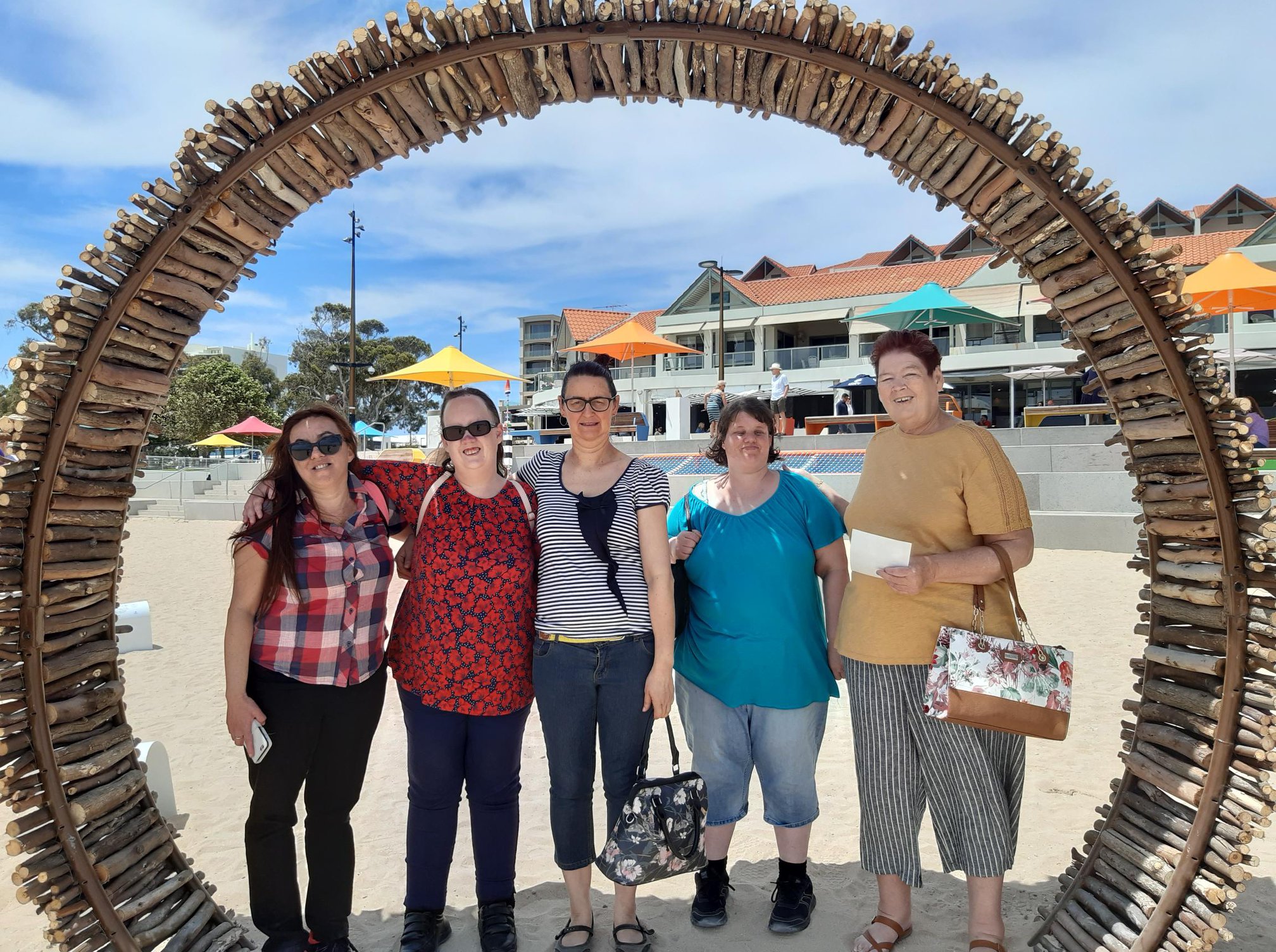
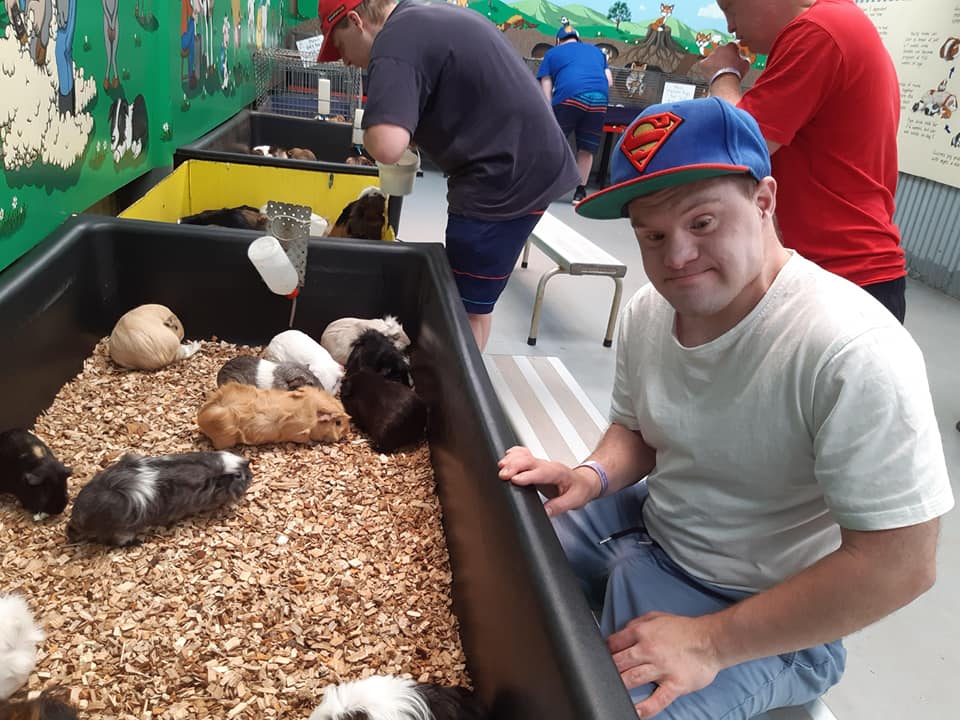
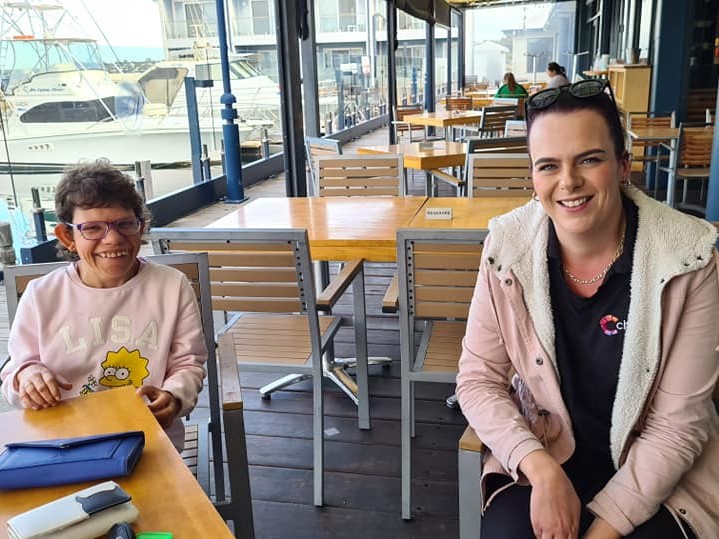
The Ability Arts artists were commissioned by the City of Mandurah to create the signage for their new Beach Access Storage shed. Seven artists created beach-inspired illustrations which were compiled into the design.
